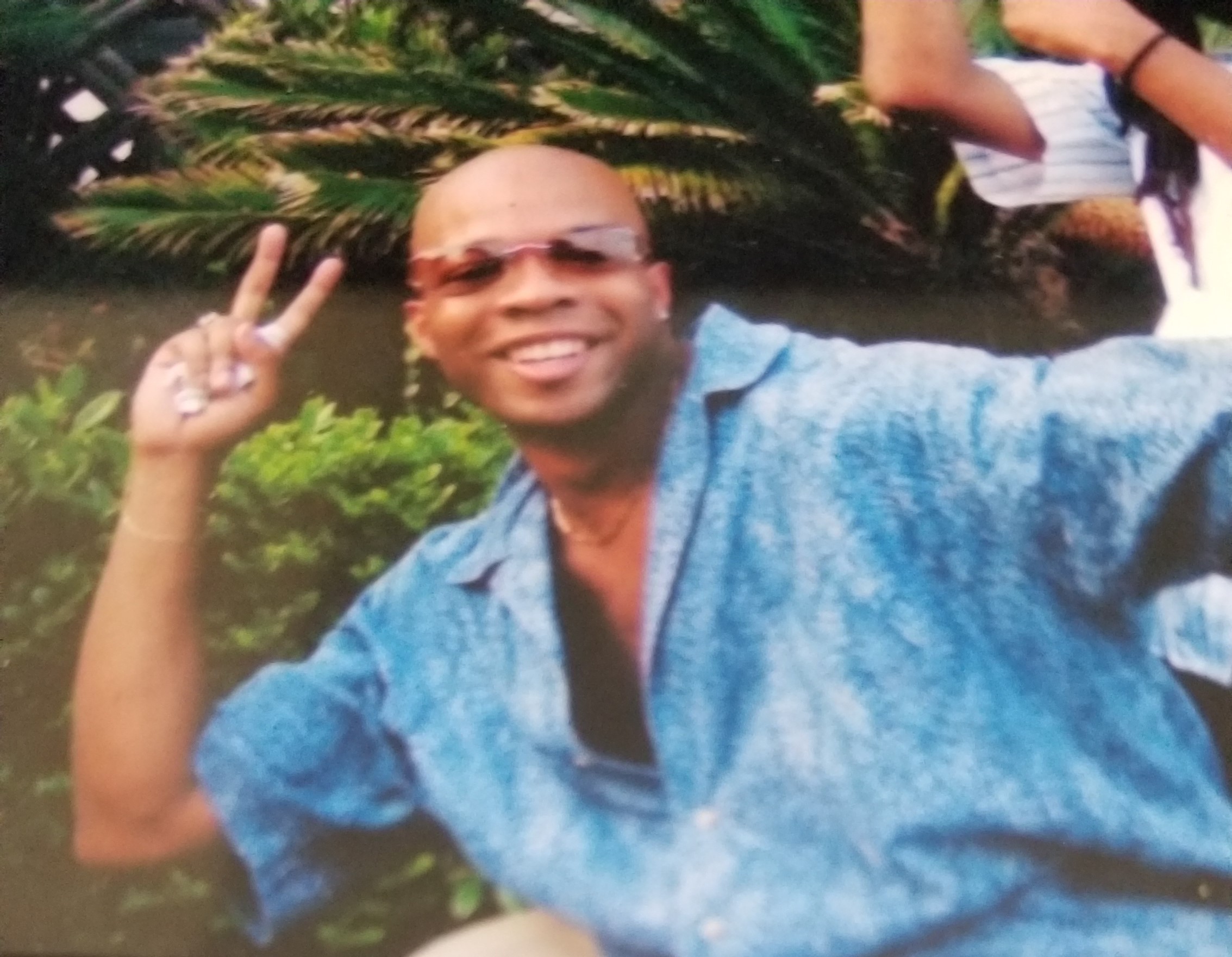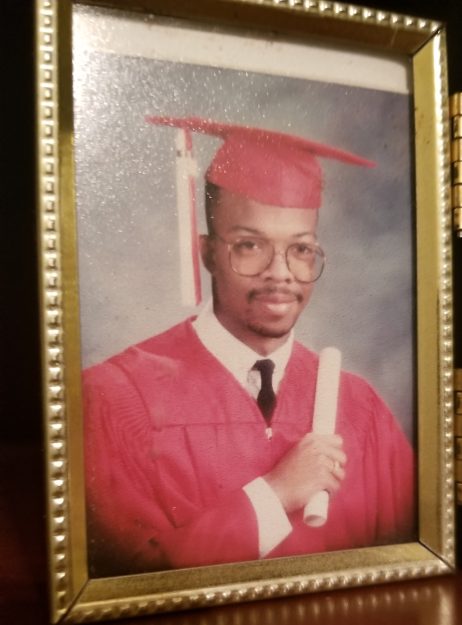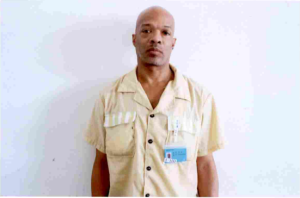An American prisoner who is seriously ill in a Chinese jail where he has spent almost a decade on unsubstantiated drug charges has appealed to basketball star Brittney Griner and legend Shaquille O’Neal to come to his assistance in lobbying the U.S. and Chinese governments for his release on medical and compassionate grounds.
Prisoner Nelson Wells Jr., originally from the state of Louisiana, made his appeal to the two superstars in a message conveyed by a third party to the Wells family support group.
“Please tell Brittney, that I have added ‘Hope’ as her middle name,” said Wells, who will turn 50 in July.
“I’ve been in here nine years, and I made you my inspiration. I know anything is possible… so I hope that it is possible to make something work. I hope you can be my pen pal so that you can hear my story,” he said in a message brought from China by a third party.
Wells Jr. expressed hope that Griner could help him overcome the obstacle of the United States not having a prisoner transfer agreement (PTA) with China to obtain his release through a negotiation by availing of an existing Chinese law. He hopes she can lobby Washington to initiate that process.
In a second message delivered by a recently released prisoner, Wells confirmed that “right now I am trying to get in touch with Brittney Griner and Shaquille O’Neal.”
He added: “In fact I wrote Brittney a letter… Brittney can have compassion because she understands my situation and can help you guys [the family support group].”
It is not clear whether Wells has managed to send the letter to Griner from the prison, where all correspondence is censored and some can get blocked.
Griner’s agent did not reply to a request for a response and O’Neal was not immediately accessible to comment.
Wells, who like his basketball idols is Black, said he also wanted to remind “Shaq” that they knew each other at kids’ camps when Wells was growing up with his U.S. military family in Germany and Hawaii. “They know each other from basketball camp in Hawaii,” the third party said.
“He hopes both these stars can use their celebrity to help raise awareness of his case in the media and bring pressure on the government.”
Shaquille O’Neal, widely known as “Shaq,” is a former American professional basketball player and is now a sports analyst on the television program “Inside the NBA.” O’Neal is regarded as one of the greatest players of all time.
Griner recently regained her spot with the WNBA’s Phoenix Mercury after a wasted year in Russian prison.
Wells learned through newspapers of Griner’s public pledge to help Americans wrongfully and arbitrarily imprisoned abroad after her release from Russia last December following 10 months as a hostage of Russian leader Vladimir Putin. Like Wells, Griner had also been held on a flimsy, doubtful drug charge. Also like Griner, Wells has never had what Americans would consider a fair and transparent trial.
“I am not surprised he also mentioned Shaq because they were in Germany as kids,” said the prisoner’s father, Nelson Wells Sr., a 66-year-old military veteran from Louisiana. Wells Sr., who served over 20 years in the U.S. military before his retirement, heads the family support group for his son.
Wells Sr. expressed hope that both stars would respond to his son’s plea. “Both Brittney and Shaq have a lot of influence with the public, and I hope they will help bring my son home. Especially, I hope Brittney will live up to her promises and be a prisoner’s envoy,” he said.
“We are trying our best to get my son’s message to her and to Shaq,” he said.

Nelson Wells, Jr. in an undated photo taken before his imprisonment. Credit: Wells family archive.
The Wells family has set up a GoFundMe page to raise funds toward legal fees for a fresh legal attempt to obtain their son’s release and transfer home on medical grounds.
“Nelson often talked to me about trying to contact these basketball players to ask them for help,” said Othello Totimeh, a recently released Liberian prisoner who spent over three years as Wells Jr.’s cellmate and carer in the prison in Chongqing, southwest China.
“I am surprised that Brittney has not yet done anything for any prisoners, to follow her promise,” said Totimeh, who is also a former soccer player and coach. “Nelson is counting on her involvement.”
Griner is said to have joined one call with U.S. government officials and families of Americans imprisoned in various foreign countries, including China, after her homecoming from Russia. She has pledged support for other American prisoners held in countries with authoritarian governments.
“Nelson was often too unwell to walk. I took care of him for three years,” Totimeh told me after connecting with the support group. “He has seizures like epilepsy but worse than epilepsy. He really needs to get out of there.”
Totimeh said he often carried Wells Jr. on his back to the prison clinic when he had seizures.
In addition to his pleas to the two stars, Wells Jr. has asked supporters to send him NBA books in English. He expects the prison officers will allow him to receive these books, unlike texts that are considered political.

Nelson Wells, Jr.’s high school graduation portrait. Credit: Wells family archive.
Wells was arrested in Chongqing in May 2014 during a visit from Japan, where he had lived for some years and was raising a family. He traveled to China in search of medical treatments and a cure for an illness caused by a head injury in a road accident.
He was charged and later convicted in a Chinese court of attempting to smuggle drugs out of China. Wells protested his innocence and alleged that somebody he got to know there asked him to carry a piece of luggage without him being aware that drugs were concealed inside it. He says he was never allowed to tell his side of the story in detail in court.
He had no proper defense and did not get a fair and transparent trial because in China, the police, prosecution, and judiciary, plus the lawyers, are all supervised and controlled by the Communist Party. China’s ruling party rejects the notion of separation of powers, independent courts, or impartial judges.
Wells was sentenced to death, which was later commuted to a life term, and then to a 22-year fixed term starting from November 2019, ignoring time already served.
When he was detained, China’s hardline leader Xi Jinping had just assumed power, and China was in the throes of a “strike hard” campaign that Xi launched against foreigners, especially people from the Anglosphere, allegedly involved in crime in the country. There was a surge in arbitrary arrests and imprisonment of Westerners and other foreign nationals, many of whom are still in Xi’s jails.
At least three Americans, two of them Black like Wells Jr, received death sentences in that period, none of which has been carried out so far. One of them, Texan Mark Swidan, at least has support from Texan legislators who are lobbying for his release.
The Wells family is urging Louisiana legislators to join the fight for Nelson’s release. But so far they seem to have been sitting on their hands.
Wells was originally held in a cell block that included other foreigners, but due to his illness he was recently moved to a block for elderly and sickly inmates who are exclusively Chinese. This means he has a more relaxed regimen than before but no foreign companions to talk to, a trade-off. He has decided to spend time in the new cell block improving his Japanese language skills for his young family in Japan.
The cell block transfer is in itself a confirmation that Wells is too sickly to stay in the regular cell block and to perform mandatory manufacturing labor, which prisoners are subjected to.
He has recently complained of bullying, such as being rammed in the corridor of his current block by an inmate in a wheelchair, and harsh discriminatory language from some officers and Chinese inmates. Totimeh confirmed that Black prisoners in China are the butt of racist slurs and provocations. Both anti-American sentiment, encouraged by the Xi regime, and anti-Black racism are rife in China.
“They dislike my nationality,” Wells said in his message.
In-person visits by U.S. consular officials were halted for a long period during the pandemic of the past three years, but they have resumed this month, improving Wells’ communication channels. He is able to make two calls per month to direct relatives, each lasting seven minutes. He recently received a package of letters, messages, photos, and reading material, via his consular case officer.
Wells’ medical condition, according to a prison medical record based on an MRI scan, which I have seen, includes an atrophying, or shrinking, of the brain, which his family believes is likely related to the road accident in which he was injured prior to his China ordeal. It is this, they believe, that causes his fits.
The condition causes frequent seizures, as witnessed by Totimeh in the cell. Wells also suffers from extremely high blood pressure and symptoms of prostate cancer. Well said he has repeatedly asked for PTSD counseling from an English-speaking psychologist or psychiatrist and this has not been provided.
The Wells ordeal, like many cases where Americans are wrongfully or arbitrarily imprisoned in China, is heavily impacted today by the frostiness in China-U.S. relations, which have recently plummeted to a new nadir after the spy balloon incident and China’s support for Putin in his war against Ukraine. The situation has reached a point where high-level conversation between the two powers seems impossible.
Yet the United States was able to procure two prominent releases from Russia last year, the most recent being Griner’s emergence from a Russian penal colony, and – not long before that – the release of Trevor Reed, whom Russia accused of spying. If Washington could achieve that, then why not something similar in China?
Below the radar and below the level of summit conversations, lawyers say there is scope for discreet dialogue based around a Chinese law dating from 2018, which allows for the transfer of foreign prisoners to a facility in their home country on medical, humanitarian, or compassionate grounds, on a discretionary basis after individual case-by-case negotiations.
Wells has just received a copy of that law. “I have been trying to get my hands on that law for years,” he said in a recent call to his parents. Now he is studying it.
The Chinese Law on International Judicial Assistance in Criminal Matters has a chapter dealing with such prisoner transfers and makes clear it is up to the foreign government to approach China’s Justice Ministry and request a discussion about a particular case.
Wells is eligible to be considered under this Chinese law because he has been commuted to a fixed-term sentence.
The United States is not known ever to have availed of this Chinese law, but China-savvy American lawyers in Beijing and some NGO leaders say this is possibly the best existing mechanism available today to hold discreet discussions with China, out of the spotlight, about prisoners such as Nelson Wells Jr.
In other words, the ball is in the Biden administration’s court to bring Americans like Wells home. Are they listening?

































